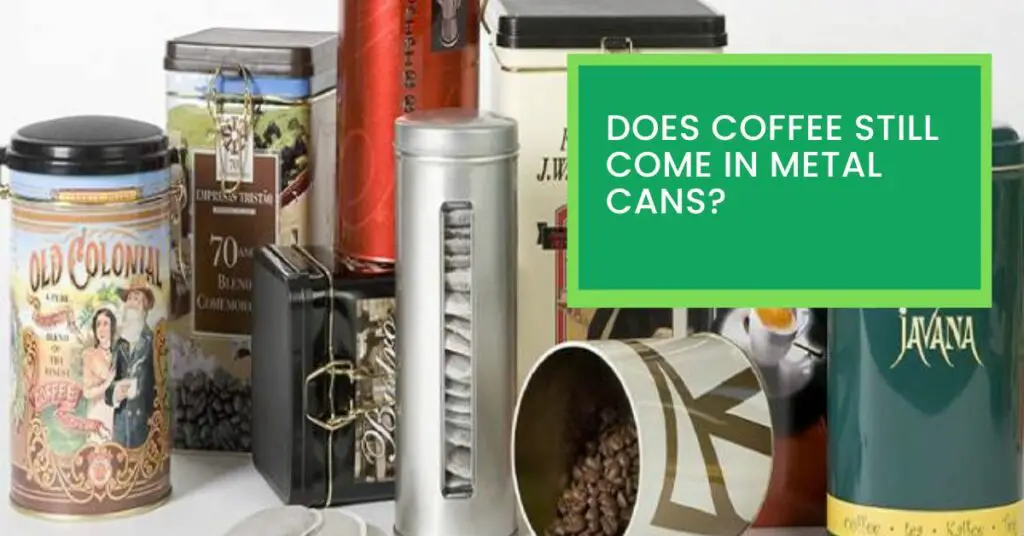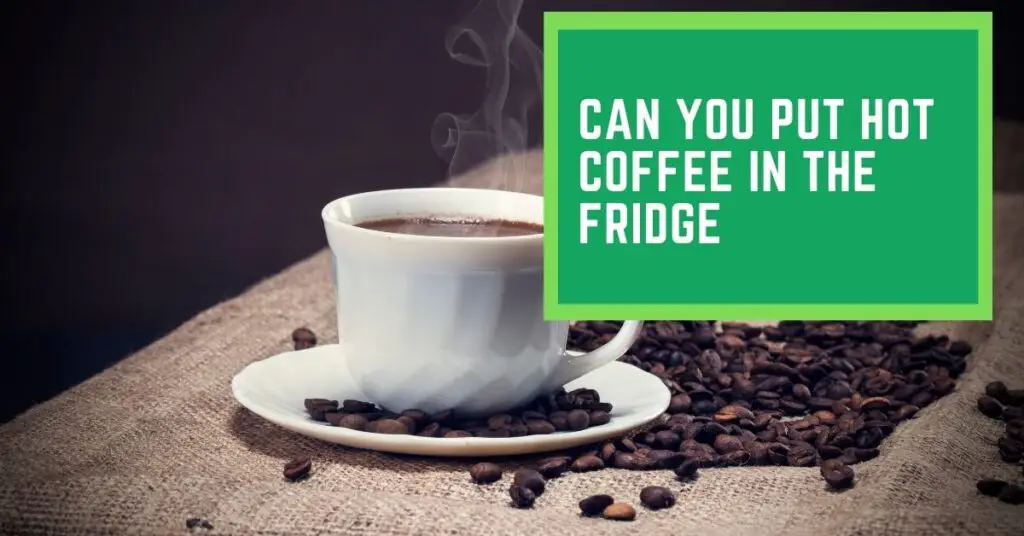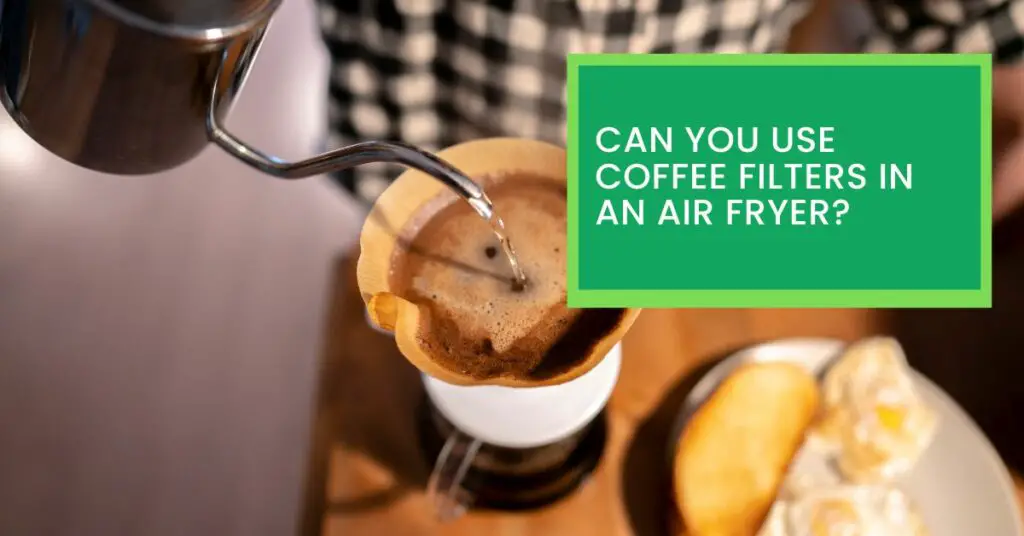Coffee packaging is one of the most important aspects of coffee production. It helps to keep the coffee beans fresh and also protects them from damage.
Most types of coffee do not come in metal cans anymore. The coffee beans are usually packaged in foil bags, glass or plastic containers. However, there are a few brands that still sell their coffee in metal cans.
In this article, we will take a look at the history of coffee in metal cans, as well as some of the benefits and drawbacks of this type of packaging.
Did Coffee Come in Cans?
Coffee has been around for centuries and has been enjoyed in many different ways. It wasn’t until the early 1900s that coffee started to be sold in cans. The first coffee can was introduced by the American Can Company in 1921. From there onward, many companies began to can coffee. This was a more convenient way to store and ship coffee. It also helped to keep the coffee fresh for longer periods of time.
How Are Coffee Cans Made?
Coffee cans are typically made of steel, though they can also be made of other materials, such as aluminium. The manufacturing process begins with a roll of steel that is cut to size and then formed into a cylinder. The top and bottom of the cylinder are then welded shut.
Once the basic can shape is complete, it is then coated with a layer of tin or another metal to prevent rusting. The can is then printed with the coffee brand’s logo and other information. Finally, the can is filled with coffee and sealed.
Coffee cans are a convenient way to store and transport coffee. They keep the coffee fresh and help to protect it from damage. When you’re ready to enjoy a cup of coffee, simply open the can and brew as usual.
Why Are Coffee Cans no Longer Used For Coffee?
The coffee can is a container that was once commonly used to store and sell coffee. However, these days, you’re much more likely to see coffee sold in glass or plastic containers. So, what happened to the coffee can?
Well, there are a few reasons why coffee cans are no longer as popular as they once were. For one thing, coffee cans are quite challenging to open. You need a can opener, and even then, it can be difficult to get the lid off without spilling coffee everywhere.
Another reason why coffee cans are less popular these days is that they’re quite heavier and more costly than plastic or glass containers. This makes them less practical for both consumers and businesses.
Finally, coffee cans are simply not reusable after they open. Once you’ve opened a can of coffee, you can’t close it back up and save it for later. This is not the case with glass or plastic containers, which can be resealed and used multiple times.
For all of these reasons, coffee cans have fallen out of favour in recent years.
Uses of Old Coffee Cans
There are many uses for old coffee cans. They can be used as storage containers and planters or even transformed into fun and decorative projects.
Storage Containers
Old coffee cans make great storage containers. They can be used to store anything from nails and screws to small toys and craft supplies. If you want to label the contents of your coffee can, simply use a permanent marker or stickers.
Planters
Coffee cans also make great planters. Just punch a few holes in the bottom for drainage and fill it with potting soil. Then, add your favourite plants or flowers. Be sure to place your coffee can planter in a sunny spot.
Projects
There are many fun projects you can do with coffee cans. For example, you can use them to make a wind chime or a bird feeder. You can also decorate them with paint, stickers, or fabric. Get creative and have fun!
What Types of Containers Are Used For Store Coffee in The Present?
Coffee containers come in all shapes and sizes, but there are a few common types that are used today.
The most popular type of container for storing coffee is the airtight canister. These canisters are designed to keep coffee beans fresh and free from moisture and oxygen. Coffee cans are also popular because they’re easy to store and transport.
Another common type of container for coffee is the vacuum-sealed bag. These bags are often used by coffee roasters to package their beans, and they’re also a good option for storing coffee at home. Vacuum-sealed bags keep coffee beans fresh and free from moisture and oxygen, but they’re not as airtight as cans.
Finally, many people also use mason jars or other types of glass jars to store their coffee. Mason jars are a popular option because they’re reusable and easy to clean. Glass jars also allow you to see how much coffee you have left, so you can be sure never to run out.
No matter what type of container you use, it’s important to keep your coffee beans fresh and free from moisture and oxygen. This will help ensure that your coffee tastes its best.
Frequently Asked Questions Related to Coffee in Metal Cans
1. When did Folgers stop using metal cans?
Folgers stopped using metal cans in 2004. They switched to a plastic lined container.
The decision to switch from metal cans to a plastic lined container was made because the company found that it was unable to recycle the metal cans. The plastic lined container is recyclable.
2. What can you use metal coffee cans for?
Metal coffee cans are a great way to organize small items in the garage or craft room. For nails and screws, use a can opener to remove the lid and then cut off the bottom of the can. The open end can be used to store and dispense nails and screws.
To use a can as a paint or pencil holder, cut off the top of the can instead of the bottom. The open end will hold the paint brushes or pencils upright, so they don’t get messy.
3. Are coffee cans made of steel?
Cans are usually made of tin-coated steel, but they can also be made of aluminium. The benefit of steel is that it’s less expensive and more durable than aluminium, but the downside is that it rusts.
Aluminium doesn’t corrode as easily as steel, so it’s a better choice for food cans if you’re worried about them getting rusty.












